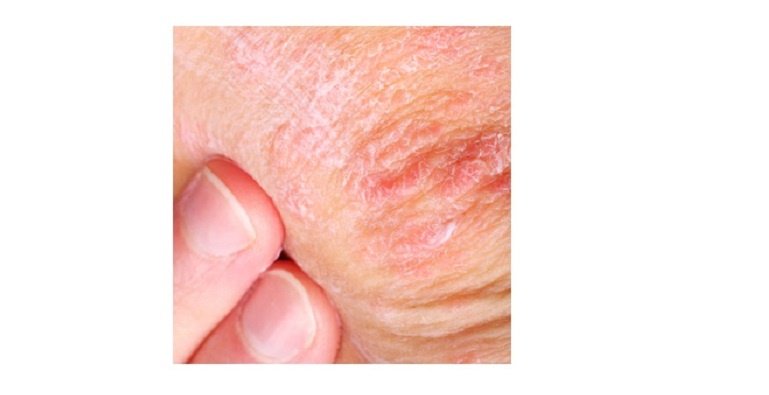Psoriasis causes reddish patches that are scaly and itchy on the arms and legs, body, scalp and other parts of the body. It is not contagious but can look like it is.
Psoriasis has cycles of good, better, best and worst. When it’s bad it is called a flare. There are cases in which psoriasis can be disfiguring, but even the fact that it is uncomfortable and painful is enough.
The effects of psoriasis go beyond physical effects. Left untreated, psoriasis lesions can be life-altering. Embarrassment, anxiety and even depression often accompany the condition. It interrupts sleep and turns simple daily tasks into difficult challenges.
Psoriasis can occur anywhere on your body but some areas are more challenging to treat. This includes the scalp, face, hands, feet, and nails. Between ten and thirty percent of psoriasis sufferers also develop psoriatic arthritis, which includes stiffness, pain, and swelling of the tendons and joints, and fatigue.
Treatments for psoriasis, as well as psoriatic arthritis, are focused on adjusting the immune response. Although the cause of a particular outbreak may not be known, some common triggers of psoriasis flares are:
- Stress
- Infections
- Medications, including lithium and beta blockers
- Skin injuries
- Other skin conditions, such as scabies, blisters, boils, eczema, and dermatitis
- Cold winter weather and indoor heating or cooling
- Hormonal imbalances
- Smoking and excessive alcohol use
Life and the challenges of psoriasis require coping strategies. Generally, health providers are making more of an effort to understand and find solutions to make those challenges more manageable.
- Stress is definitely a trigger for a psoriasis flare. Ironically, a psoriasis flare can cause more stress.
- The discomfort of psoriasis may have a bigger impact on the quality of life than the visible effects.
- Friends and family often don’t understand and psoriasis can have an effect on your relationships, although not completely.
- Depression is not uncommon.
- Working and needing time for doctor visits can be a problem.
Patients with psoriasis, on average, may also be at increased risk for high cholesterol, high blood pressure, and heart disease. It is important to eat well, exercise and follow up with your family doctor or internist to ensure you are screened and treated for these conditions.
Also, be sure to read about treatments for psoriasis such as systemics, biologics, phototherapy, topicals and more.
When Should I Visit a Dermatologist for Psoriasis?
We have multiple locations throughout the country, so fill out our simple online form to get in touch with us. One of our local team members will reach out to you shortly to answer your questions or schedule an appointment for you to visit us soon.
Find a location near me
or

